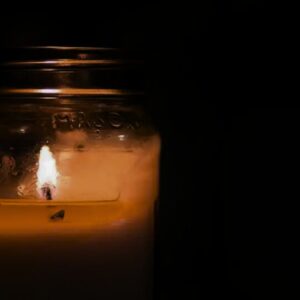
LitHub Daily: April 17, 2015
THE BEST OF THE LITERARY INTERNET
TODAY: In 1397, Chaucer tells The Canterbury Tales for the first time at the court of Richard II.
- Jennifer S. Cheng on the Japanese shut-in phenomenon of hikikomori and the rhythms of life as an American recluse. | Literary Hub
- Chimamanda Ngozi Adichie and Haruki Murakami have officially been designated as influential. | TIME Magazine
- Colorado is moving one step closer to becoming heaven on earth (now complete with rustic reading experience). | The New York Times
- Why Jane Austen triumphed where Frances Burney failed? The importance of the right kind of day jobs for writers. | The Millions
- A newly discovered passage that reveals L’Engle’s A Wrinkle in Time to have a more nuanced worldview: “Security is a most seductive thing… I’ve come to the conclusion that it’s the greatest evil there is.” | Wall Street Journal
- Where did eenie, meenie, miny, mo come from, and why won’t it leave us be? | The Paris Review
- What does a woman’s face mean? On reading expressions like a text. | Boston Review
- Sarah Koenig’s wizardry aside, why our brains love Podcasts. | The Atlantic
- Move over, VIDA count, there are new depressing writing charts in town: the anatomy of writing awards. | Poets & Writers
- Frank Stanford was an epic death poet, dream poet, moon poet; his first volume of collected poems was published this month. | Nerve
- The gendered evolution of the exclamation point. | The Huffington Post
- Equivalence is impossible: on translating Chinese “volumes of bookness” into English books. | NYRB
- “Everywhere in his writing you can feel his heart beating. / This one made my heart pound.” Ariana Reines on Charles Bowden, Eduardo Galeano, and beautiful old women. | Harriet
- “When I type an em dash, I groan audibly… When I type an en dash, I shiver and coo.” How much of a grammar nerd are you? | Clickhole
Article continues after advertisement
Boston Review
Clickhole
Harriet
lithub daily
Nerve
NYRB
Poets & Writers
The Atlantic
The Huffington Post
The Millions
The New York Times
The Paris Review
TIME Magazine
Wall Street Journal
Lit Hub Daily
The best of the literary Internet, every day, brought to you by Literary Hub.



















